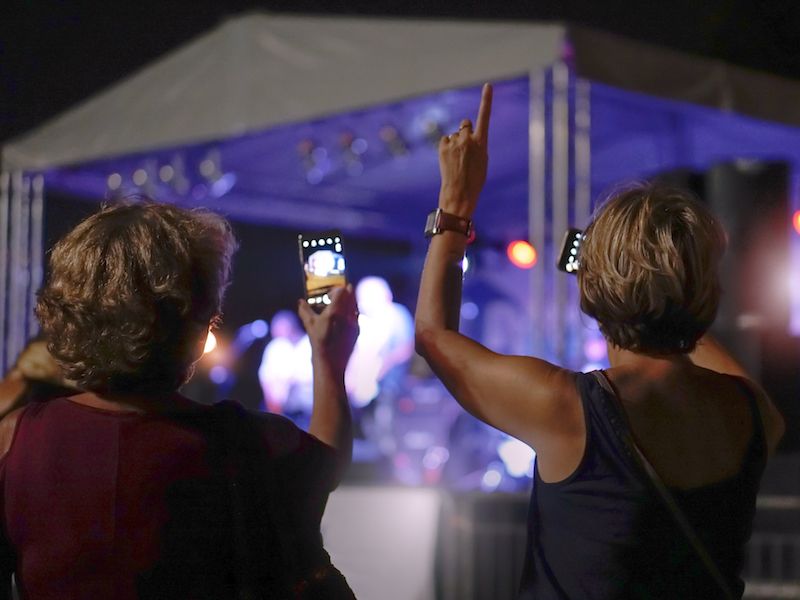
We’ve been getting excited about summer activities all year: swimming in the pool, visiting the beach, and a few activities that may damage your hearing. That’s correct, summer has many hidden risks to your hearing, either from loud noises or the external scenarios you may find yourself in. Any sounds above 80 decibels can damage your hearing, while permanent hearing loss can happen in swimming pools or other bodies of water. You have to take preventative measures and be conscious of your environment in order to keep your hearing safe this summer. Keep on reading to identify the summer’s six hidden dangers to your hearing.
When You go to Concerts, Wear Ear Protection
Whether you’re at an indoor arena or an outside show venue you still need to wear hearing protection during live music. 90 decibels is in the danger zone for hearing injury and live music reaches this level even when you’re at outdoor venues. That’s the reason why it’s always a smart idea to use earplugs regardless of whether you’re seeing a concert outdoors or indoors. Earplugs dampen the sound while still permitting you to hear and get into the music. If you’re bringing young children to a performance, consider buying them a heavy duty set of earmuffs since their hearing is much more vulnerable than those of adults.
It’s Not Just Loud at Fireworks
Honestly, there are a lot of reasons to avoid fireworks in the summer. This is not about the professional 4th of July displays, we mean the backyard fireworks that bring about many of injuries during the summertime. Home fireworks reach decibel levels of over 155 which can injure your ears as well as causing hand injuries, loss of vision and backyard fires. This year, on the 4th of July, appreciate the show from a little further away and leave the fireworks to the pro’s.
Mowers Can Bring About Loss of Hearing
If you’re serious about your lawn, most likely you’re out there at least once a week on your mower, using your edger, and trimming your bushes. But the muffled feeling in your ears is a signal that your hearing has been injured. That’s because the lawn tools, which are constantly loud, have a slow and steady impact on your hearing. If you’ve ever noticed landscapers, it is likely you have noticed them using hearing protection, next time you work on your yard with noisy power equipment, you need to take a cue from them and use earmuffs or earplugs.
How to Safeguard Your Ears at Beaches And Pools
Huge numbers of people suffer from swimmer’s ear every summer, which happens when the ear canal traps water that has lots of bacteria. The bacteria will then infect the ear, producing swelling and painful earaches. It’s not exclusively rivers and lakes that contain these bacteria, they can sometimes be found in pools and hot tubs if they aren’t cleaned and treated thoroughly. No irreversible injury should occur if you get your ears checked out by a hearing professional. To be safe, when swimming in your pool, use special swimmers earplugs and keep the chemical balance correct to minimize the likelihood of getting swimmers ear.
Boats and Other Water Sports
Summertime is a taste of freedom for those who love to be in a boat on the water, taking in the fresh lake breeze or the salty air of the ocean. But, jet ski and boat engines are usually noisy,they can get up to over 100 decibels. Lasting hearing damage can happen after about 15 minutes of exposure to that much noise. Again, it’s really in your best interests to use a set of throw away, foam earplugs when you’re out on the water to make certain you don’t unwittingly damage your ears.
Car Races Can Injure Your Ears
It doesn’t matter what type of auto racing you enjoy, motorcycle, midget, Formula 1, drag racing or stock cars. If you attend a lot of auto-races this year, they all present a danger. It’s estimated that sound levels can go over 120 decibels at many races, which is certainly in the danger zone for hearing damage. As mentioned earlier, your kids should use muffs while you should wear earplugs at least. Because you may not get to appreciate the sounds of any races in the future if you don’t.
